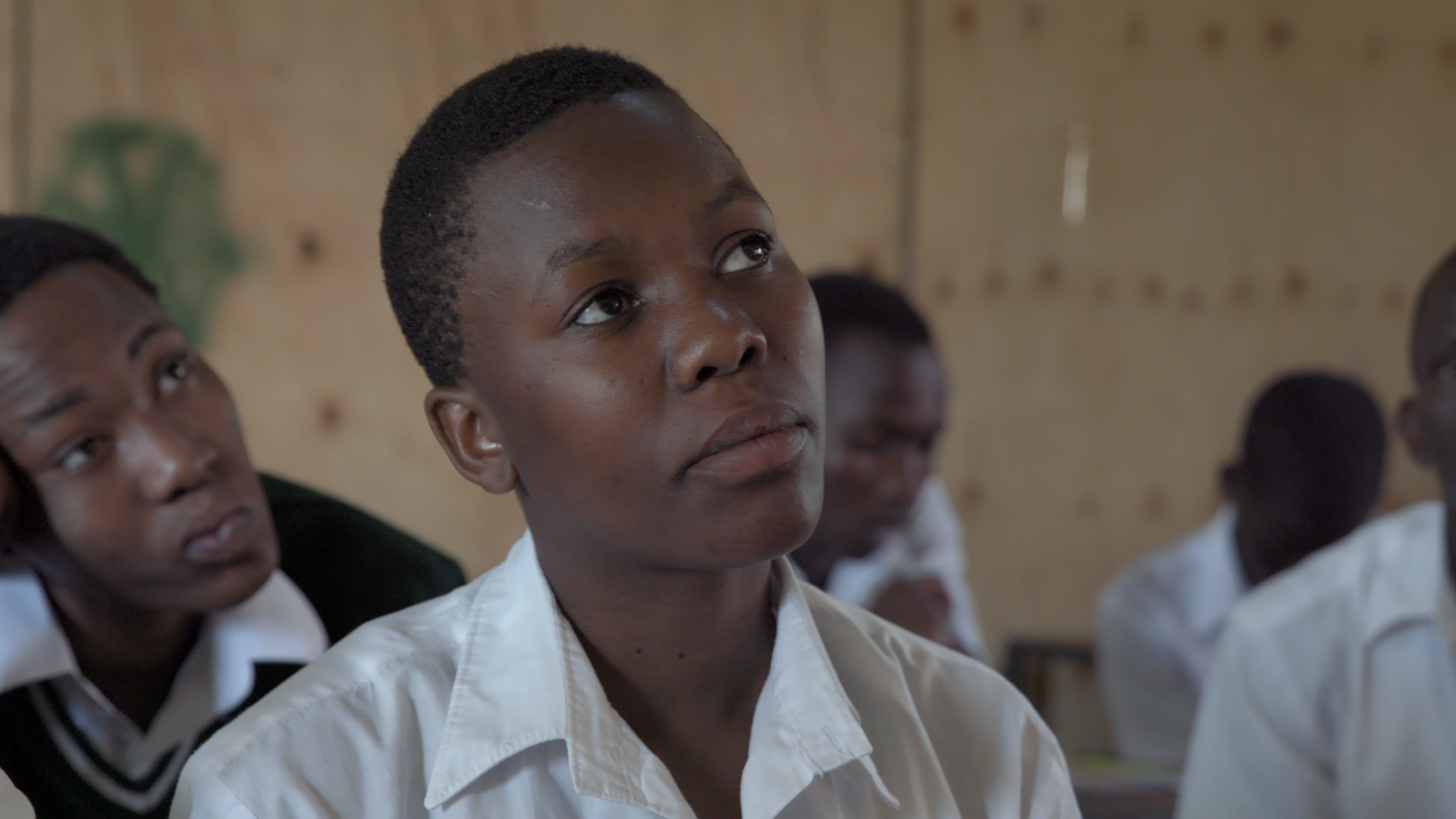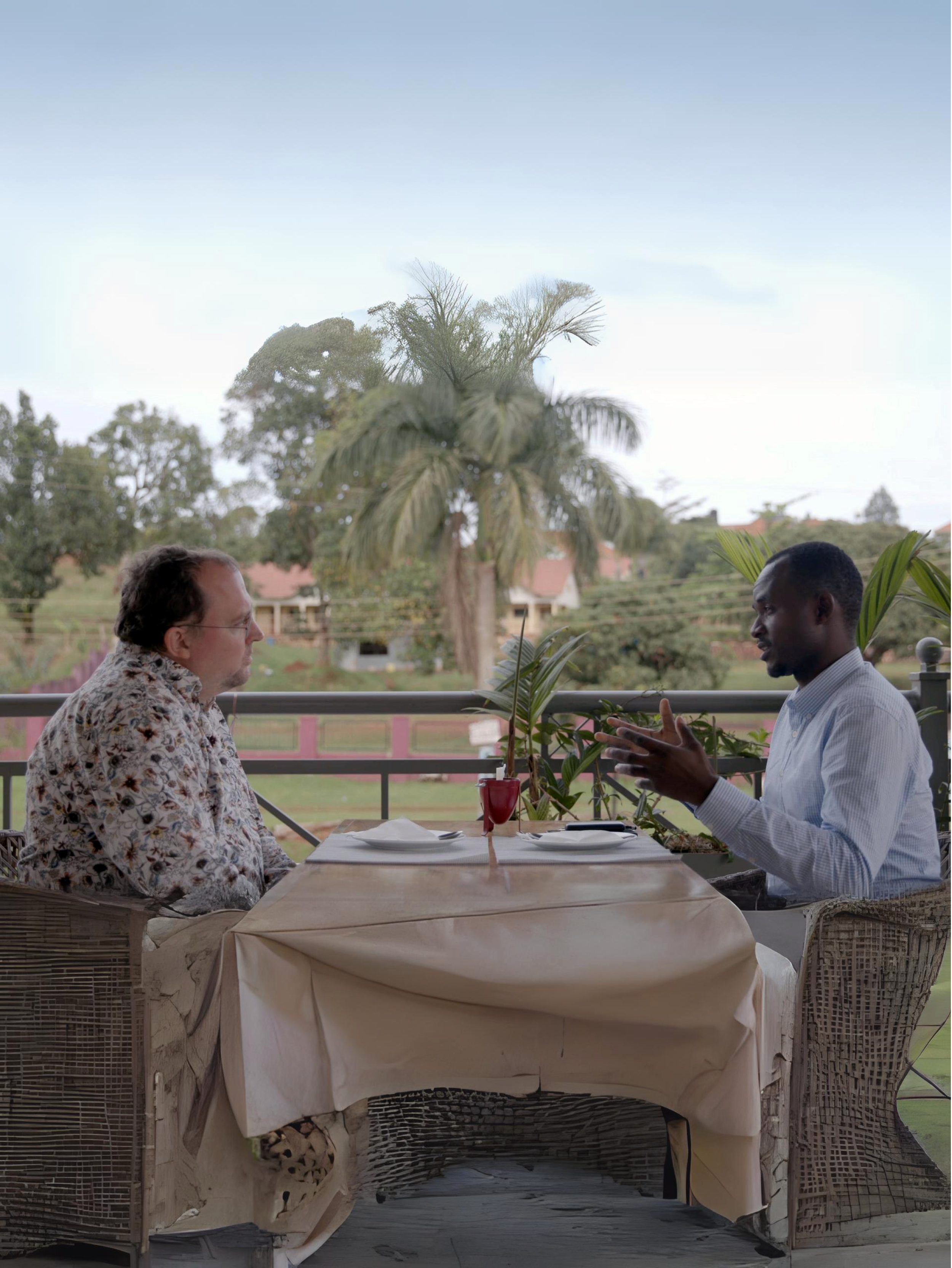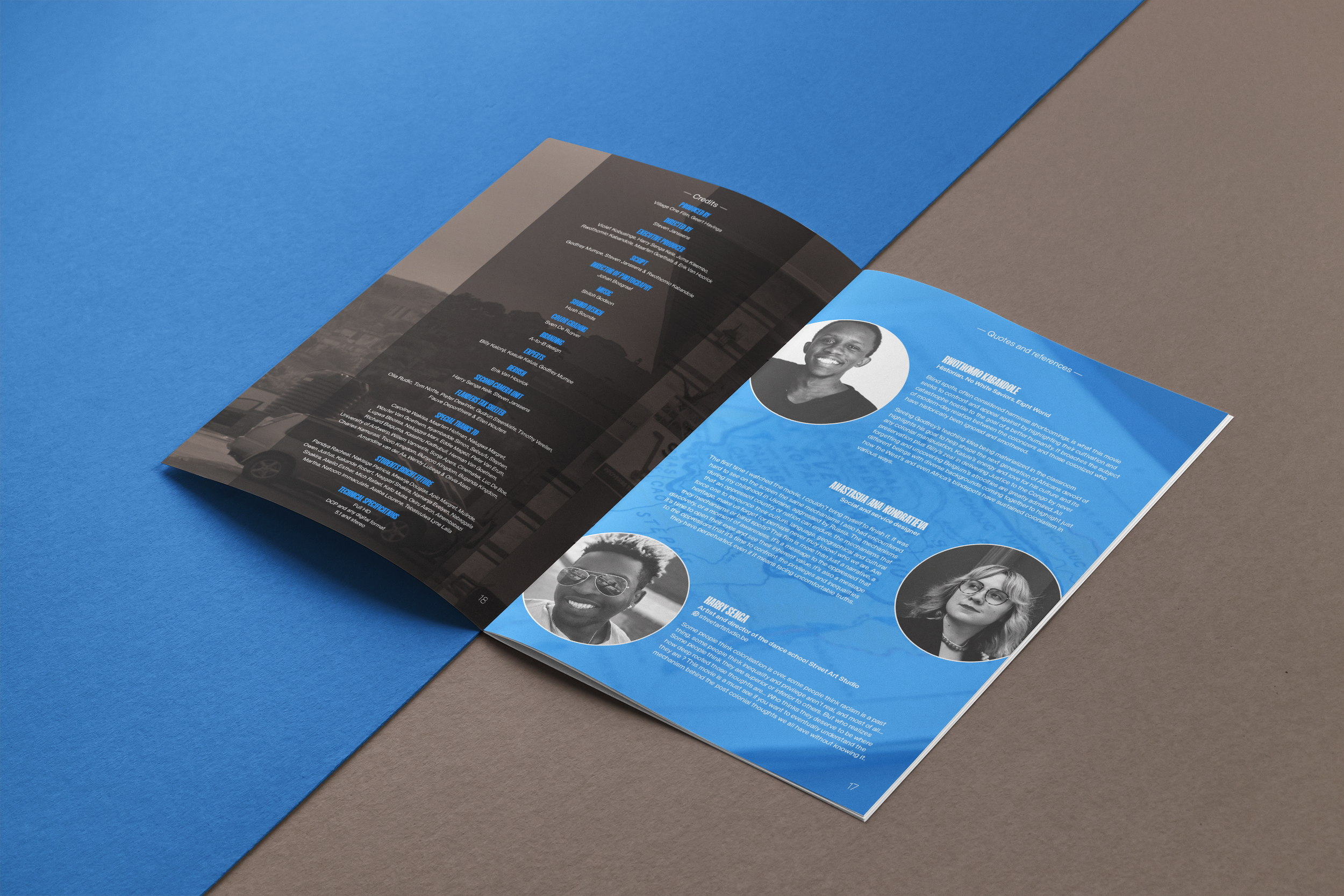

Blind Spots in Colonial History
Colonial history doesn’t stop at the well-known stories. Each week, we explore a different country and uncover hidden histories. Follow us on Instagram to learn more!

A film by Steven Janssens & Godfrey Mumpe
The film journeys from a Ugandan classroom to a Belgian train station, showcasing how education, culture, and institutions shape the way we think and act.
Central to the story are the students in the class of history teacher Godfrey. Their questions and explorations become the driving force as they unpack, challenge, and strive to overcome colonial mindsets and racist systems.
Through Godfrey's push to redefine "discoveries", Kalule's fight to preserve his culture, and Billy's call for reclaiming Africa's stolen wealth, the film asks: can we truly move forward without confronting our own blind spots? Blind Spots promises a thought-provoking, non-judgmental exploration, using humor and personal stories to challenge viewers' perspectives.
Through Godfrey's push to redefine "discoveries", Kalule's fight to preserve his culture, and Billy's call for reclaiming Africa's stolen wealth, the film asks: can we truly move forward without confronting our own blind spots? Blind Spots promises a thought-provoking, non-judgmental exploration, using humor and personal stories to challenge viewers' perspectives.
Reactions of the students, the real stars of Blind Spots ●
Reactions of the students, the real stars of Blind Spots ●
In a Kampala cinema, Ugandan students huddle together, eyes glued to the screen. They're not just any viewers – they're the stars of "Blind Spots"! This documentary follows their journeys as they grapple with colonialism's long shadow and fight against prejudice. From Godfrey questioning history lessons to Kalule celebrating his culture, these students are more than characters – they're driving the conversation. Their reactions during this pre-release screening are key.

Download the promo folder
Dive deeper into the topic with comprehensive background information,
interviews & quotes.

teasers
BACKWARD
Discovery
history

“You can’t wake a person who is pretending to be asleep.”
Navajo Proverb


director's note
Blind Spots marks a critical step in my personal journey towards decolonization and inequalities, often denied, forgotten, or ignored.
As a father, husband, friend, and fellow human being to Black, Brown, Indigenous people and all those affected by the legacies of colonialism and white supremacy, I will never fully relate to their lived realities. Despite the equal human rights on paper, I withal benefit from the privileges while it regularly restricts the equality and freedom of people of color, which directly influences their self-esteem.
Through Blind Spots, I delve deeper into confronting my unconscious bias and self-reflecting the privileges I have due to educational and institutional falsehoods. Therefore, I’m profoundly grateful to various individuals in my country of Belgium and multiple countries on the continent of Africa, such as the Republic of Uganda, for removing the blindfold from my perception. I hope this film will be a tool for creating change, changing our views, changing our minds, and uncovering our blind spots that, once watched through eight chapters, cannot be unseen.
While our brains are locked by the system, there are only us who hold the key. Opening our eyes and changing our minds would be the first step, the first line in a new story that we truly own, and that we leave to the next generation to write a better, equitable, and more justice-hungry future.
As a father, husband, friend, and fellow human being to Black, Brown, Indigenous people and all those affected by the legacies of colonialism and white supremacy, I will never fully relate to their lived realities. Despite the equal human rights on paper, I withal benefit from the privileges while it regularly restricts the equality and freedom of people of color, which directly influences their self-esteem.
Through Blind Spots, I delve deeper into confronting my unconscious bias and self-reflecting the privileges I have due to educational and institutional falsehoods. Therefore, I’m profoundly grateful to various individuals in my country of Belgium and multiple countries on the continent of Africa, such as the Republic of Uganda, for removing the blindfold from my perception. I hope this film will be a tool for creating change, changing our views, changing our minds, and uncovering our blind spots that, once watched through eight chapters, cannot be unseen.
While our brains are locked by the system, there are only us who hold the key. Opening our eyes and changing our minds would be the first step, the first line in a new story that we truly own, and that we leave to the next generation to write a better, equitable, and more justice-hungry future.

quotes and references
Rwothomio Gabriel Kabandole
Activist, Historian, formerly No White Saviors, Eight World
Blind spots, often considered harmless shortcomings, is what this movie seeks to confront and appeal against by highlighting their cultivation and catastrophe hostile to the goal of a better humanity. It broaches the subject of modern-day relation between the colonizers and those colonized who have historically been ignored and silenced.
Seeing Godfrey’s teaching idea being materialized in the classroom highlights his goal to help shape the next generation of Africans devoid of any colonial manipulation, Kalule’s energy and love for his culture and its preservation plus Billy’s zeal in delivering Justice to the Congo by never forgetting and uncovering Belgium’s atrocities are greatly admired. All different beings with diverse backgrounds coming together to highlight just how the West and even Africa's blind spots have sustained colonialism in various ways.
Anastasiia (Ana) Kondratieva
Social and service designer
The first time I watched the movie, I couldn’t bring myself to finish it. It was hard to see on the screen the same mechanisms I also had encountered during my childhood in Ukraine, aggressed by Russia. The mechanisms that an oppressed country or nation can endure, the mechanisms that force one to renounce their culture, language, geographical and cultural heritage, make us forget (or perhaps never truly know) who we are. Are they mechanisms or blind spots? This film is more than just a narrative, a discovery, or a moment of awareness. It’s a message to the oppressed that it’s time to open their eyes and see their inherent value. It’s also a message to the oppressors that it’s time to confront the privileges and inequalities they have perpetuated, even if it means facing uncomfortable truths.
Harry Senga
Artist and director of the dance school Street Art Studio
streetartstudio.be
streetartstudio.be
Some people think colonisation is over, some people think racism is a past thing, some people think inequality and privilege aren’t real, and most of all… Some people think they are superior or inferior to others. But who realizes how deep rooted those thoughts are… Who thinks they deserve to be where they are ? This movie is a must see if you want to eventually understand the mechanism behind the post colonial thoughts we all have without knowing it.

more
Crazy Money
Feature documentary on Eight ‘s pilot
project in Busibi
(Uganda U01 village)
(Uganda U01 village)
“What is possible when we have guaranteed money to meet our basic needs?
No requirements. No stipulations. No paybacks.
We look to the village of Busibi to discover
what’s possible when we give money directly to people.
No strings attached.”
Blending in together, they create a colorful and poetic reality portrait, illustrating the big consequences of a small sum of money...
Blending in together, they create a colorful and poetic reality portrait, illustrating the big consequences of a small sum of money...
eight
Eight provides each person in villages in Uganda and DR Congo with a direct and unconditional basic income boost for two years.
This unconditional cash transfer enables them to think beyond the survival mode, choose where to invest the money, and lead a dignified life.
This unconditional cash transfer enables them to think beyond the survival mode, choose where to invest the money, and lead a dignified life.





















